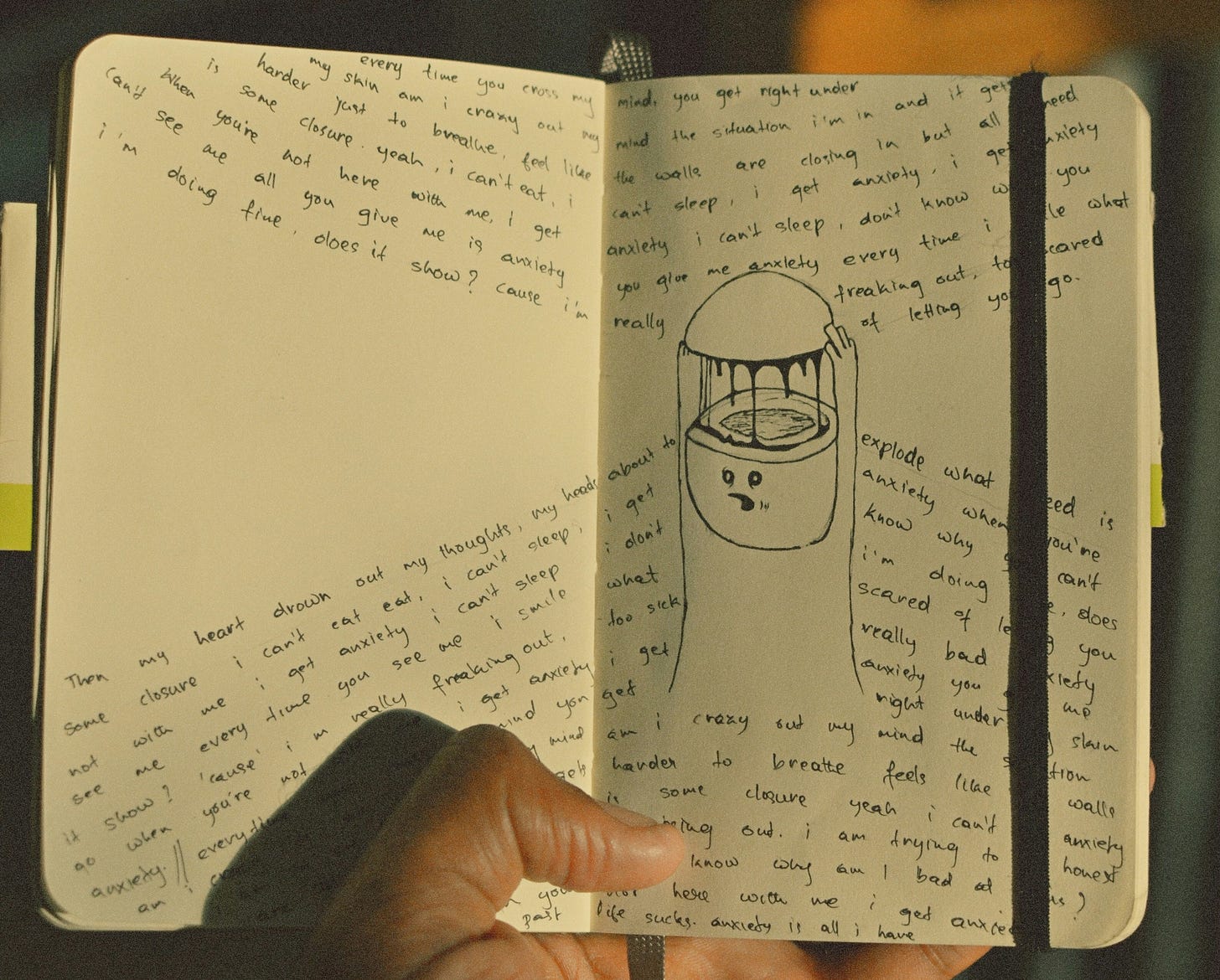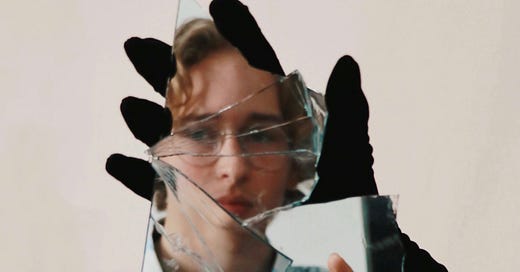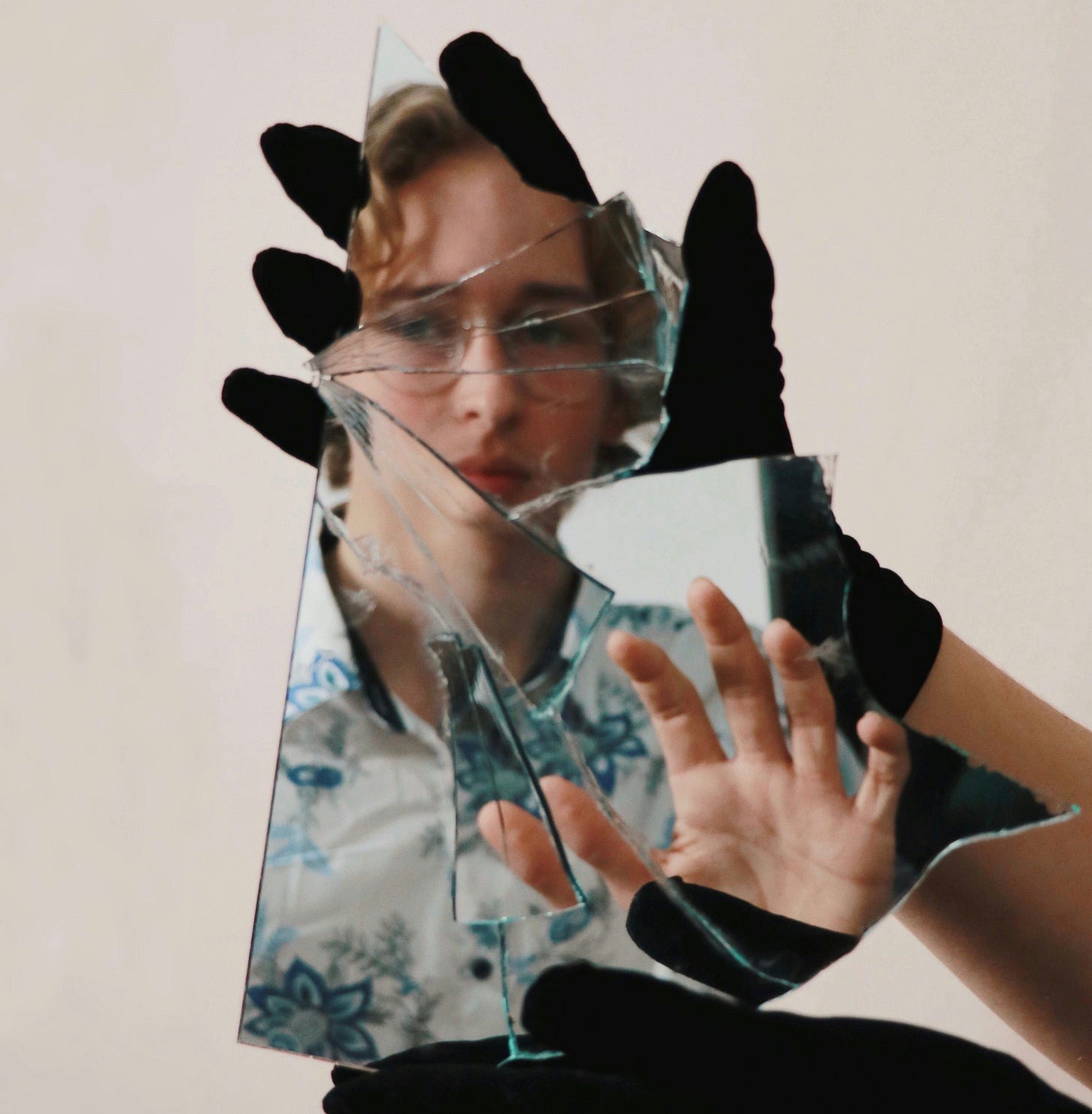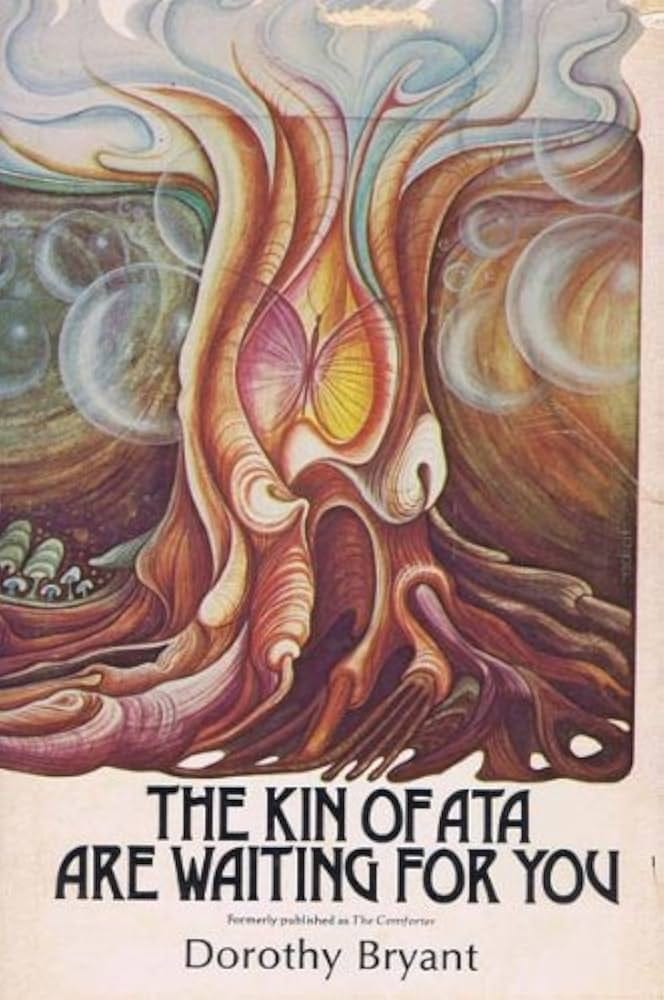SOS - Cyberstalking the Faux-Self. Part 2
How cyberstalking affects the victim and even corrupts the cyberstalker in the relationship.

Your Digital Self Isn’t The Real You
Imagine if the person you were involved with was so emotionally insecure and injured that they couldn’t respect your mental privacy. Imagine if they didn’t respect the aspects of self which you choose to keep hidden, or weren’t ready to share. If one is already so damaged at the beginning of the relationship that they can’t respect your privacy, these boundary violations are only going to create more disruption and resentment towards you. Your conduct in real life will be inconsistent with internet data, and your partner’s conception of the real you will become more and more disrupted and distorted.
Reconciling the digital self with the authentic self is too much for the insecure partner to handle, and their conception of reality, as far as the relationship is concerned, will ultimately collapse. There will be endless contradictions between the digital self, which is fundamentally insecure, and the real self, which can not afford to be.
There will be a huge difference between your real self and your digital self, because there’s a difference between how you act when you’re wondering and pondering online, and the self you need to be in the real world. The real self is more stable, secure, and well-managed, but the digital self is naturally more emotional and insecure. We get caught up in frivolous topics, we ask crazy questions, we get distracted by exes, fall down rabbit holes with sexual kinks, and we get into stupid arguments with people online. Frankly, there’s nothing wrong with that, because that digital self isn’t the real you. It doesn’t come with you to work, or to the park, or on dates. It doesn’t meet your friends, or walk into an important meeting with you. It gets left on your home computer or phone, where it belongs.
There’s nothing wrong with having multiple selves. Men and women are full of contradictions, and we all have a number of ‘selves’ that we can transform into. We know from modern psychology that we all have an the inner child, a public self, the Freudian selves like the ego, the ‘id’, and the superego, and there's the true self, the spirit, which is trying to break free - though we’re not always sure what it means to break free.
So there are a lot of selves in you for your partner to acquaint themselves with. But I can’t stress enough that the digital self isn’t really you. It’s an illusion created in the mind of your partner based on the data they have and how they interpret it, and that is a huge problem! How they interpret the data has more to do with their fears and insecurities than the data itself.
Your life partner is not an unbiased judge. They naturally may hold some resentments against you just by virtue of the fact that relationships are hard. They have their own set of assumptions and biases which might influence how they judge your internet activity, while they’re struggling with their own problems. It’s devastating to me that a person would compound their own insecurities by immersing themselves in the faux self of their partner presented by digital data. With all that your partner is going through, they’re obsessing over the gnawing fears and insecure thoughts of their loved one, rather than enjoy the real self that’s sleeping right next to them.
Dorothy Bryant is a woman
A personal anecdote about the distorted self
I’m reminded of the time during my relationship with my ex, when I was immersed in a really good book. Believe it or not I didn’t just read smut back then, (nor do I do so now). I would read science fiction by Asimov, books on mysticism by Carlos Castaneda, books about Sufism, self-help books, and books about creativity of course. And I once picked up this used book at Goodwill. It was called The Kin of Ata are Waiting for You.
It's a book about a broken man who enters a dream where people are human but different. They have cultural practices based in human nature and they’re clean and highly-civilized yet non-technological, apolitical and non-religious. The main character encounters these people as a crash survivor, having washed ashore onto the island they live on. While unconscious, he’s physically healed by these people, and restored to his normal self. But there in this requiem, over the years, he becomes a different and new self, thanks to his interactions with The Kin of Atta. The book explores some very visceral and graphic topics. Over the course of his time on the island the character unfortunately rapes someone, and accidentally kills someone, and yet he still undergoes an experience of personal growth and healing. He falls in love, and has children, and when the time comes, he realizes he has to leave and go back to the other world. I’ve decided not to tell you what happens in the end, but let's just say that the beautiful ending involves justice, redemption, and enlightenment.
I sat on the bed reading the book one weekend afternoon when my partner confronted me. I was well past the beginning and easily three quarters of the way through the book, where the antihero is letting go of his ways and discovering new perspectives.
“Hey what is this! What are you reading? Honestly!” She indicated the early pages featuring the chauvinist antihero’s monologue with cocaine, hookers, and sexist language.
She found me reading it and perhaps she had already flipped through the first few pages, because she quickly developed some assumptions about the story. She must have thought it was the account of a male chauvinist’s exploits, perhaps like Catcher in the Rye (which I haven’t read). When I told her what it was really about she didn’t believe me.
“What?” “Why are you reading this crap?... Why are you reading about some guy and a dead hooker?” “What do you mean? This is a good book. That’s just the first part of the story.” She didn’t believe that I was reading a novel about spirituality, human nature and recovery and redemption. “Oh yeah right!” and she reads me a particularly depraved passage from the beginning of the book. So I said to her “the book was written by a woman.” “Are you sure?” My ex was an aspiring writer and deeply respected women writers. “Yeah!, I'm pretty sure Dorothy Bryant is a woman. I don't know a lot of men named Dorothy.” I couldn’t resist a good comeback. When my ex saw the name on the front cover she was embarrassed. Her reality quickly reset. She smirked as her brain did the math. Her face said good one, you got me.
I was just proud of the fact that I got over on her for once in my life. She was a PhD and five years older than me, so she was always ten steps ahead of me intellectually. It was nice to win something for once.
All these years later, what really happened in her head clicked for me. Her brain did the math based on data she wasn’t supposed to have, and as a result she made a false assumption about my reading habits, what I’m interested in, and how I think.
My partner had already been stalking me for years by this time so she knew that sometimes I would read smut - erotica that was taboo or offensive. I was deeply ashamed but I had started doing this when I was just 16. It wasn’t the type of thing I could bring up at a dinner party, and I’d never wanted anyone to know about it. This habit of mine must have made my ex assume that everything I read was over-sexualized or chauvinistic. That’s just not the case. I loved reading about culture, spirituality, mental health, and science fiction too. My biggest reads were Naguib Mahfouz, Isaac Asimov, Carlos Castañeda, and Julia Cameron.
My ex-partner almost exposed her clandestine surveillance routine by judging me for what I was reading. Deception and cyberstalking makes one misjudge their partner, and she even misjudged the book I was reading. Stalking is simply going to affect how one views their partner and how they treat them. The data might convince a woman that their partner doesn’t respect women, that he constantly objectifies them, or that he's a raging narcissist!
“He’s a raging narcissist!” She says, because labeling someone a narcissist is all the rage these days.
And then they will replace talking to and learning about their partner with the digital data that they collect on them. The breakdown in communication caused by cyberstalking is what bothers me the most. I constantly felt misjudged for reasons I couldn’t understand.
Based on my experience, it’s just a matter of time before the cyberstalker partner stops talking to their partner. The stalker loses interest in the real life data, because it’s not presented on a screen in a way that’s easy to digest (or share). Instead of assuming the best, cyberstalkers lose faith in the relationship and come to expect the worst from their partners.
Why listen to their stories and real world experiences when you have their digital data? Why discover new things about them? Why even talk to them when nothing they say is to be trusted?
A broken clock is right twice a day.
In the stalker’s mind, someone like me, the digital version, is always planning to leave. Well eventually that part came true. The real me also wanted to leave, and eventually I did.
Not because I wanted to, but because I had no choice. I had spent way too long feeling unsafe in my own home, although I didn’t know why I felt that way. Eventually I learned what cyberstalking was, and that I had been stalked over and over again by her and many others after her. That’s when everything started to make sense.
I realized that I hadn’t just been stalked by her. I’d been targeted by fake friends, envious colleagues, and new paramours, all who thought they were ‘exposing the real me’ and serving the greater good by violating my privacy.
As terrible as the realization was that I’d been stalked all throughout the longest relationship I had, at least I finally understood what I had been feeling, and I learned that my instincts were right all along.






